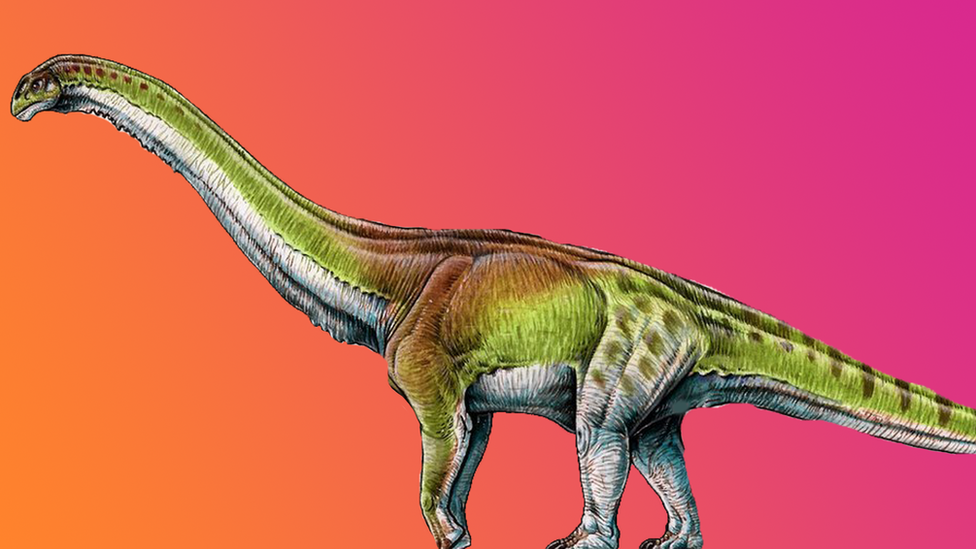UK's biggest ever prehistoric sea dragon discovered
- Published
- comments
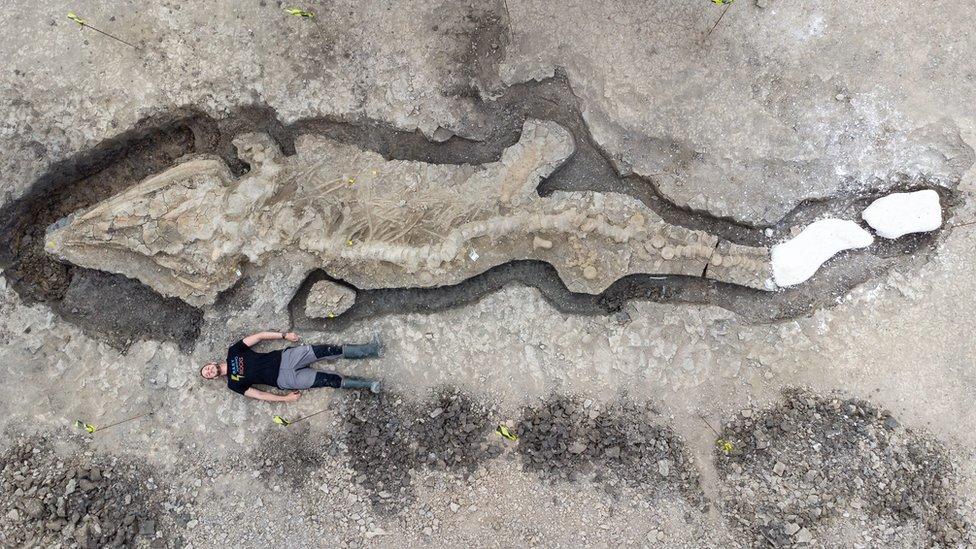
The fossil of the UK's biggest ever sea dragon has been discovered by scientists, who are calling it one of the "greatest finds" in paleontological history.
The fossil of the ichthyosaur was found in the Midlands and it's thought to have lived 180 million years ago.
The skeleton measures 10 metres in length and the skull weighs one tonne, making it the largest and most complete fossil of its kind ever found in the UK.
The first ichthyosaurs, which are called sea dragons because they tend to have very large teeth and eyes, were discovered by fossil hunter and palaeontologist Mary Anning in the early 19th century.
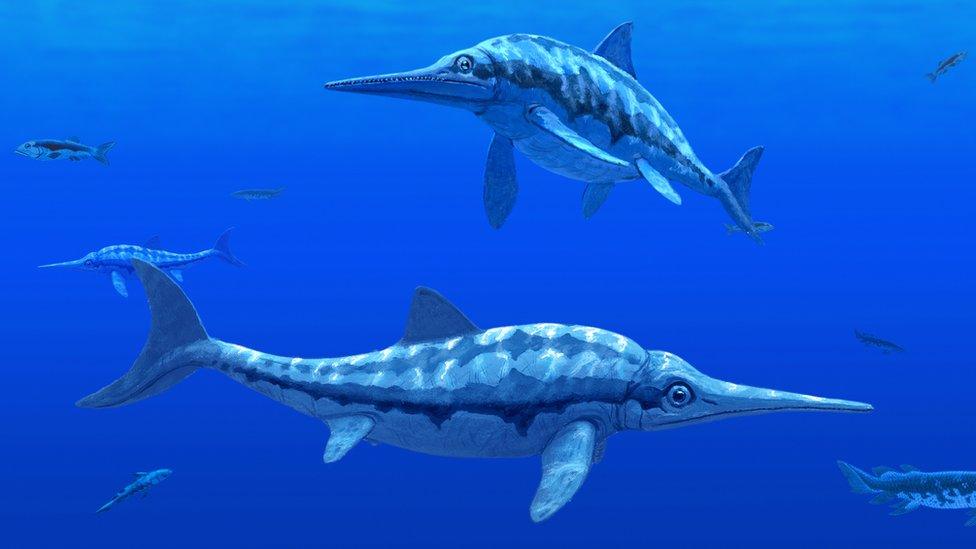
This particular fossil was found by Joe Davis of Leicestershire and Rutland Wildlife Trust during a routine draining of a lagoon island at Rutland Water reservoir in February 2021.
During landscaping work at the reserve's reservoir in February 2021, he'd spotted something unusual poking out of the mud.
It turned out to be the fossilised remains of a ten-metre long sea predator called an ichthyosaur.
"I looked down at what seemed like stones or ridges in the mud and I said this looks a bit organic, a bit different... Then we saw something that looked almost like a jawbone."
Dr Dean Lomax, a palaeontologist who has studied the species, said: "Despite the many ichthyosaur fossils found in Britain, it is remarkable to think that the Rutland ichthyosaur is the largest skeleton ever found in the UK.
"It is a truly unprecedented discovery and one of the greatest finds in British paleontological history."
"Usually we think of ichthyosaurs and other marine reptiles being discovered along the Jurassic coast in Dorset or the Yorkshire coast, where many of them are exposed by the erosion of the cliffs. Here at an inland location is very unusual, " said Dr Lomax.
Rutland is more than thirty miles from the coast, but 200 million years ago higher sea levels meant it was covered by a shallow ocean.
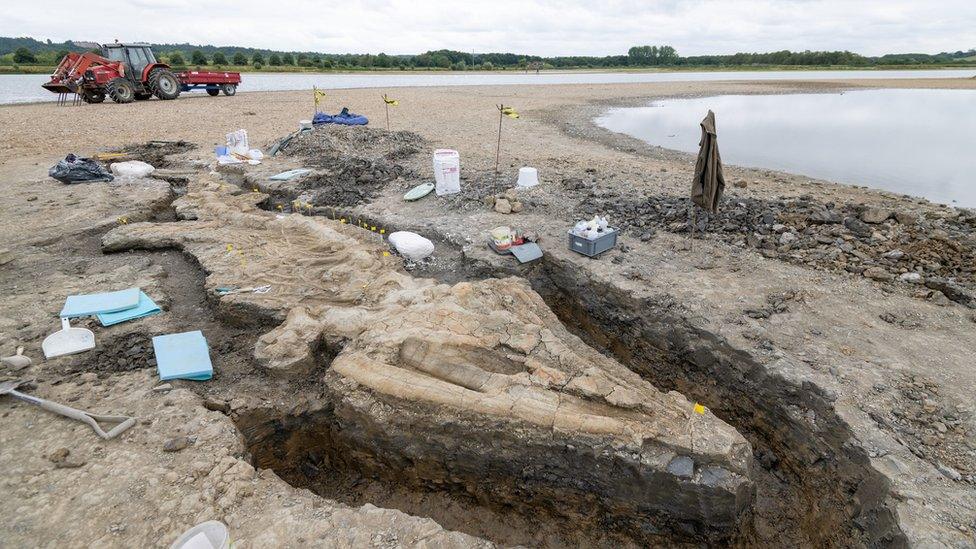
Ichthyosaurs were marine reptiles which first appeared 250 million years ago. They went extinct 90 million years ago.
They varied in size, with some of them more than 25 metres in length and they resembled dolphins in their general body shape.
Two incomplete and much smaller ichthyosaurs were found during the initial construction of Rutland Water reservoir in the 1970s. However, the latest discovery is the first complete skeleton.
You can find out more about the find in a special TV show - Digging for Britain - on Tuesday 11 January at 8pm on BBC Two or on the BBC iPlayer.
- Published8 April 2019
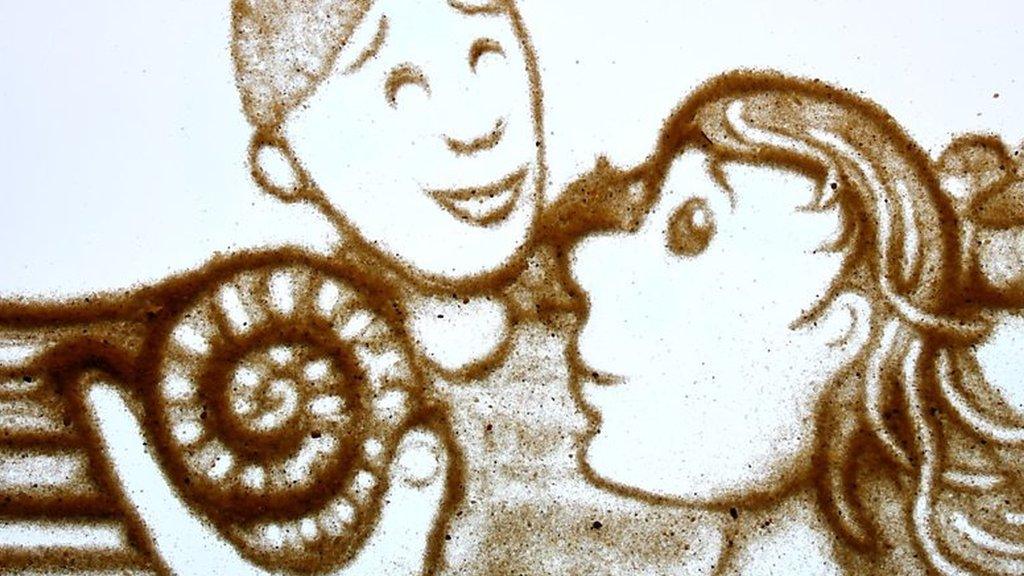
- Published13 September 2021
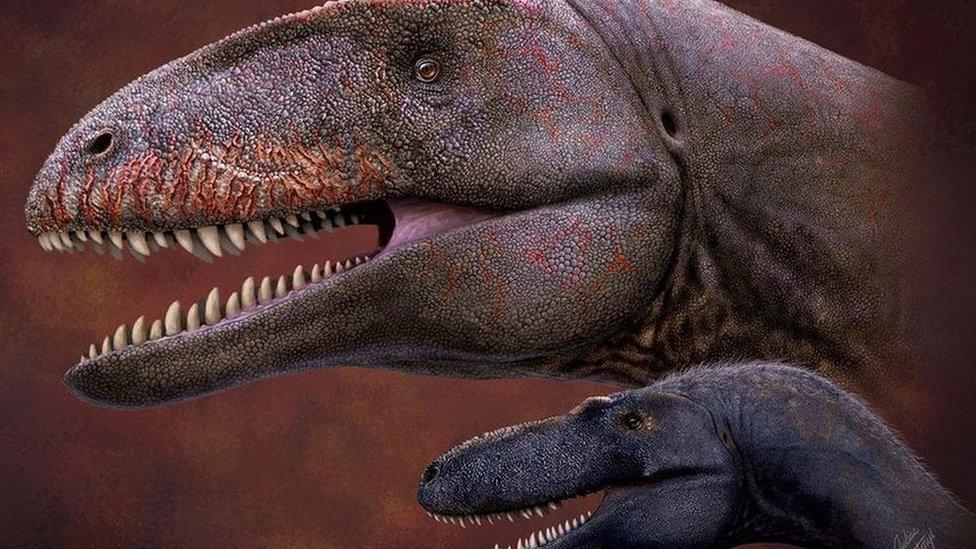
- Published17 May 2019
